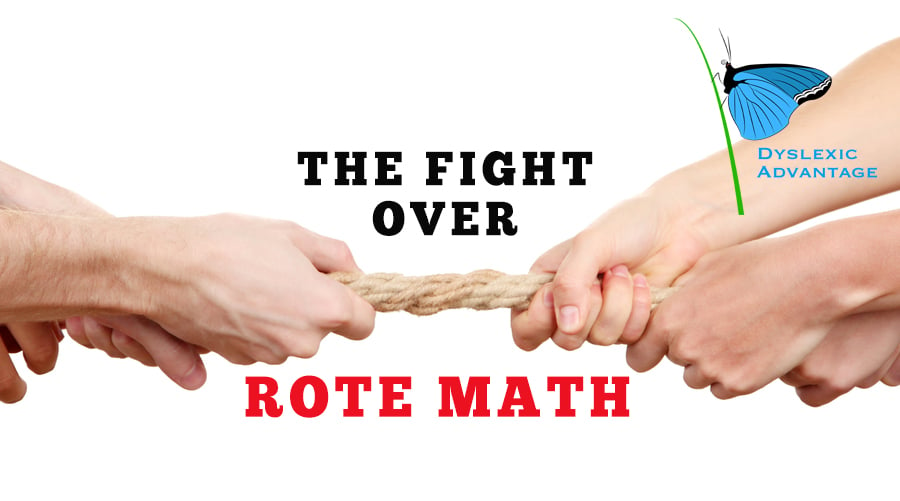At Harvard University in the 1970s, a clinical psychologist made a startling discovery. Intending to study the emotional problems that caused students at one of the world’s elite universities to drop out of school to drop out, he found out instead that the most common reason students dropped out of their degree programs was that they were unable to satisfy Harvard’s foreign language requirement. “Dinklage described three groups of students who were otherwise, bright, gifted, and highly motivated, but who remained unsuccessful in the foreign language classroom. He reported that these students were not helped by merely improving study habits or by adjusting to postsecondary demands.” The 1st group of students demonstrated problems in written language that were most apparent in “the student’s reading […]
ACTING WITH DYSLEXIA [Premium]
There are some dyslexic children who seem to be natural actors and actresses at early ages and their talent and imitating the gestures, voices, and personalities of others seems almost from birth. What are the strengths and talents that make so many dyslexic people talented actresses and actors? For some it may be emotional empathy, others, an ability to visualize events and personal interactions cinematically, and still others, a love of ‘getting into the heads’ of so many characters. Some drama schools report as many as 30% of their students are dyslexic, so dyslexia seems to be over-represented in these school compared to the general population. Some researchers have observed that as a group, dyslexics are more likely to visualize events upon reading text than […]
Effect of Strength-Based Coping on Children’s Stress and Coping
From Australia: "Strength-based parenting is an approach where parents deliberately identify and cultivate positive states, processes and qualities in their children," Professor Waters said. "This style of parenting adds a 'positive filter' to the way a child reacts...
Q: What Help is Available for Adults with Dyslexia ?
A. Depending on what kind of help you are seeking and where you live, there are many different types of resources available to help adults with dyslexia. In the United States, it's been estimated that 3 out of 4 children are not being identified in school; among...
WHEN A UNIVERSITY IS DYSLEXIA-UNFRIENDLY [Premium]
Despite recent advances in dyslexia-friendly policies and statements in K-12 and higher education, reports of dyslexia-unfriendly and discriminatory practices are more common than anyone would like to mention. At the university level, rarely is there any education for faculty and staff about the needs of dyslexic and LD students on campus, so it should not be surprising that many professors will not understand why accommodations are necessary for dyslexic students. They may actively discourage students from obtaining such accommodations although it is against federal law. As we have recently reported, US Department of Justice regulations requires that private colleges give “Considerable weight to the documentation of past accommodations, modifications, or auxiliary aids or services received in similar situations” and not require additional burdensome re-testing. […]
Latest Research: Repetition As a Poor Way to Teach Dyslexics [Premium]
In groundbreaking research, researchers at MIT or the Massachusetts Institute of Technology reported that dyslexic children and adults have “a diminished ability to acclimate to a repeated input in their paper titled “Dysfunction of Rapid Neural Adaption in Dyslexia.” Like many research papers, dyslexia is seen through a negative lens (‘dysfunction’) and the take-home points through university press releases, similarly so, however the findings are interesting ones and fit with an evolving picture of dyslexia as a learning difference (rather than disease or disability) that extends beyond reading and has ramifications for many aspects of education. “It’s a difference in the brain that’s not about reading per se, but it’s a difference in perceptual learning that’s pretty broad,” says John Gabrieli, who is the study’s […]
How a Dyslexic Author Wrote a NYTimes Bestseller about Joy
"...He explained that there is a Tibetan saying that it is the painful experiences that shine the light on the nature of happiness... The Archbishop added that that “nothing beautiful comes without some suffering,” and he mentioned how our muscles need resistance to...
Improved College Board Guidelines for Test Accommodations
New from the College Board: "Beginning January 1, 2017, the vast majority of students who are approved for and using testing accommodations at their school through a current Individualized Education Program (IEP) or 504 Plan will have those same accommodations...
[PREMIUM] Latest Research: Dyslexia, Sequential Memory, and Seeing the Big Picture
“My mind doesn’t work like a train track. It’s more like a web page with lots of hyperlinks.” – dyslexic honors college student. It’s refreshing to see that more researchers take an interest on dyslexia beyond reading. In this recent paper from Belgium and Missouri, the challenges of remembering sequential information for dyslexics and non-dyslexics was reviewed. Both working memory and sequencing were examined. Working memory is a type of short-term memory necessary for keeping information ‘in mind.’ Sequencing is remembering the order that things are said. It’s activities such as this that that can make something like following classroom instructions or remembering computer passwords easy or hard. Several interesting observations were made from their review of the research literature: – Dyslexic children and adults tend […]
[PREMIUM] Tips from a Dyslexic World Memory Champion
When people say they would like to ‘brain train’ or get smarter for school, they often mean they want to make their brains more efficient – so they learn more, but also work less. One of the most straightforward ways to do this is to boost memory – and for most dyslexic people, the way you train may be more important than how hard or how much. We talk about memory trade-offs a bit in our book, The Dyslexic Advantage, but briefly, in general, dyslexic people of all ages tend to show a preference for personally-experienced memories rather than dry facts that need to be memorized by rote. A trick for memorizing more efficiently is to take the dry stuff and transform it into something […]
The Fight over Rote Math
If you think you've been hearing conflicting information about rote math in the news or from schools, you're absolutely right. The fight is spilling over to educational policymakers and makers of standardized tests such as the College Board. For dyslexic and...
Research: Classroom Culture Matters – Effects on Reading Performance [Premium]
In the latest issue of the Journal of Learning Disabilities, researchers from Harvard and Greece found that classroom culture, and in particular LD students’ perceptions of their classrooms motivational framework had sudden, significant, and unpredictable effects on reading performance and students’ emotional state. From the authors: “The purpose of the present study was to evaluate the proposition that a classroom’s motivation discourse exerts significant influences over students’ achievement in reading.” The two conditions that researchers compared were: #1. Mastery (internal standard) – “In our class trying hard is important” #2. Performance (external standard) – “In our class, getting good grades is the main goal.” Their brief conclusions: “…the results confirmed the research hypotheses concerning the role of mastery and performance goals. The form (mastery) had a […]

![DROPPING OUT BECAUSE OF FOREIGN LANGUAGE [Premium]](https://www.dyslexicadvantage.org/wp-content/uploads/2017/02/r1-18.png)
![ACTING WITH DYSLEXIA [Premium]](https://www.dyslexicadvantage.org/wp-content/uploads/2017/02/Screen-Shot-2019-09-03-at-12.59.14-PM.jpg)


![WHEN A UNIVERSITY IS DYSLEXIA-UNFRIENDLY [Premium]](https://www.dyslexicadvantage.org/wp-content/uploads/2017/01/element5-digital-jCIMcOpFHig-unsplash-scaled.jpg)
![Latest Research: Repetition As a Poor Way to Teach Dyslexics [Premium]](https://www.dyslexicadvantage.org/wp-content/uploads/2016/12/shutterstock_133874900.jpg)


![[PREMIUM] Latest Research: Dyslexia, Sequential Memory, and Seeing the Big Picture](https://www.dyslexicadvantage.org/wp-content/uploads/2016/11/calendar-sequential-memory-shutterstock-400x250.jpg)
![[PREMIUM] Tips from a Dyslexic World Memory Champion](https://www.dyslexicadvantage.org/wp-content/uploads/2016/11/shutterstock_266694722-scaled.jpg)

![Research: Classroom Culture Matters – Effects on Reading Performance [Premium]](https://www.dyslexicadvantage.org/wp-content/uploads/2016/11/our-shutterstock-class.jpg)













